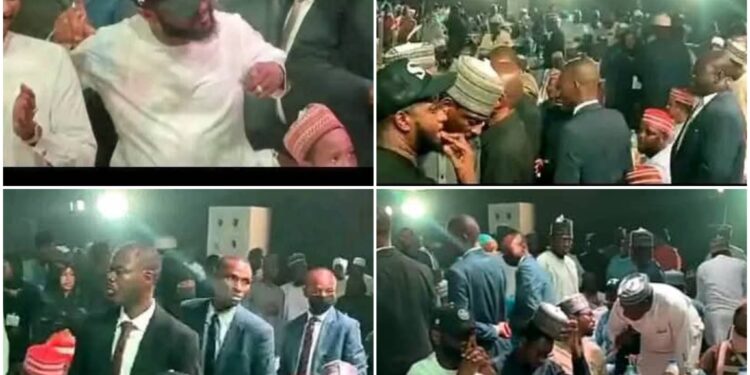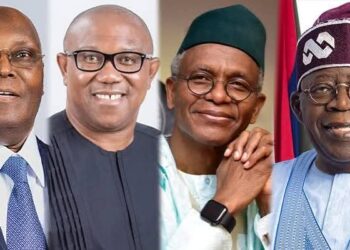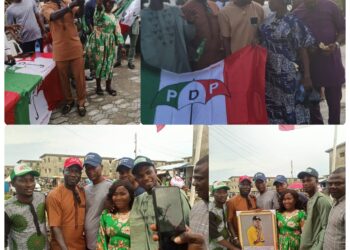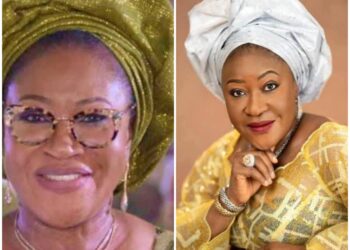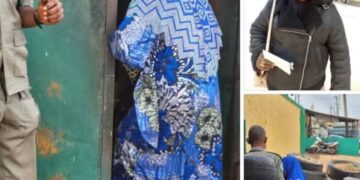
By Ibrahim Kegbegbe
Seyi Tinubu, son of Nigeria’s President, Bola Ahmed Tinubu, continues to solidify his influence in the country’s political landscape, blending philanthropy with strategic political engagements. His recent visit to Kano, where he broke his fast with Muslim faithful and flagged off a feeding programme for the less privileged and disabled, is seen by many as more than an act of goodwill—it is another calculated move in his growing political playbook.
The event, held at the Al-Furqan Mosque in Kano Metropolis on Monday, March 3, 2025, attracted a diverse audience, including not just members of the ruling All Progressives Congress (APC) but also those of the opposition New Nigeria Peoples Party (NNPP), led by its Chairman, Hashim Sulaiman Dungurawa. The presence of political stakeholders across party lines underscored Seyi Tinubu’s deepening political footprint, particularly in the North.
Before the Iftar, Seyi Tinubu paid a visit to the residence of renowned business mogul, Aminu Dantata, and later met with Kano State Governor, Abba Kabir Yusuf. These high-profile meetings, coupled with his grassroots outreach, further signal his strategic positioning within Nigeria’s political framework.
A Silent Political Manipulator?
While Seyi Tinubu’s public image is largely associated with youth engagement and philanthropy through initiatives like the Renewed Hope Youth Engagement (RHYE), political insiders recognize him as a silent strategist whose influence extends far beyond the surface. His role in securing key appointments in his father’s administration, such as that of Ajuri Ngelale as Special Adviser on Media and Publicity, and his reported influence in the emergence of Musiliu Akinsanya (MC Oluomo) as National President of the National Union of Road Transport Workers (NURTW), are testaments to his behind-the-scenes maneuvering.
According to political analysts, his ability to navigate Nigeria’s complex power structures has made him a force within the corridors of power. While not officially holding a government position, his interventions are felt in key appointments and political mobilization efforts, particularly in the North West and North Central regions during the 2023 elections.
A Strategic Visit to Kaduna?
Unconfirmed reports reaching The Merit Newspaper suggest that Seyi Tinubu may extend his Ramadan engagement to Kaduna in the coming days, possibly breaking fast with Muslim faithful in the state. If this happens, it would further reinforce his growing presence in the northern political landscape.
As the Ramadan season unfolds, observers are keenly watching Seyi Tinubu’s movements. Is he merely engaging in religious and philanthropic activities, or is he strategically cementing his political influence ahead of future political dynamics?
His engagement with key figures in Kano has already sparked speculations about his broader intentions. Some political analysts argue that his outreach in the North aligns with the long-term political interests of the Tinubu administration, particularly in fostering alliances that could prove crucial in subsequent elections. Others believe he is subtly carving a niche for himself as a power broker, distinct from his father’s political structure but still deeply rooted within it.
If his rumored visit to Kaduna materializes, it would further amplify discussions about his role in shaping the political landscape beyond Lagos, his home state. Kaduna, a pivotal political and economic hub in northern Nigeria, holds strategic significance. A visit there would not only reinforce his presence among influential leaders in the region but also position him as a key figure in bridging political gaps between different factions.
The Growing Influence of a Political Mastermind
Seyi Tinubu’s approach to politics—discreet yet impactful—reflects a modern style of political influence where strategic networking, youth mobilization, and high-level engagements shape power structures. While he remains outside the formal political scene, his influence continues to be felt in critical appointments, grassroots mobilization, and alliance formations across party lines.
As his engagements continue, one question remains: Is Seyi Tinubu preparing for a more active political role in the future, or is he content with being the unseen hand behind the scenes? Either way, his movements in the coming months will provide clearer answers. For now, he remains one of the most intriguing figures in Nigeria’s evolving political landscape.

